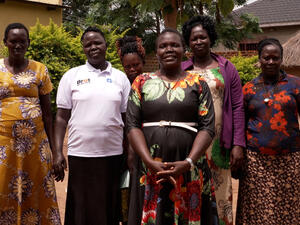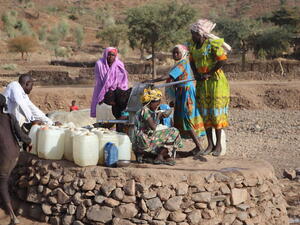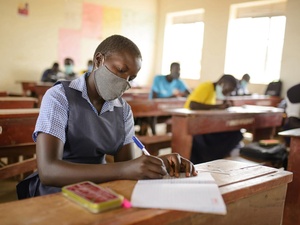The Long Walk Home
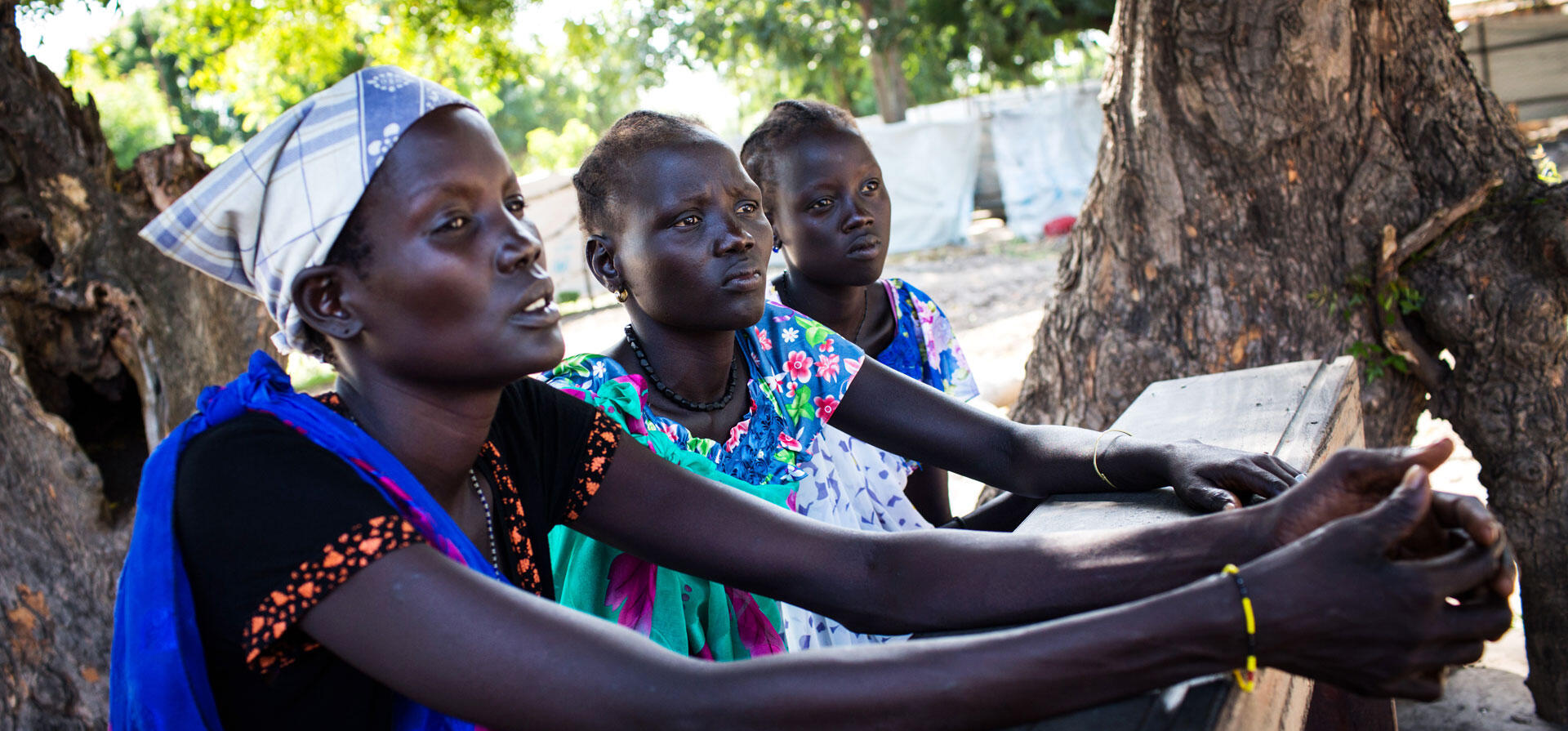
The Long Walk Home
It was the wild animals he heard out there in the night, and the fear of stepping on a snake in the dark, that really worried Gatnyak Chuol as he trudged behind his mother on their long walk home.
An energetic 10-year-old boy, Gatnyak is quick to laugh and to act tough. As the eldest, he is not quite aware of his growing strength, and he tends to be a bit too boisterous with his younger brothers and sisters.
But out there in the wilderness, he was afraid. Why were they walking this path for 12 straight days and nights with nothing but the clothes on their backs? Whatever the reason, was it worth all this fear?
Gatnyak's family have been through a perilous year. They had to run from their homes at the start of 2014, shortly after long-standing mistrust between supporters of rival politicians in the faraway capital of his homeland, South Sudan, erupted in bloodshed. Nearly 12 months later, the conflict continues.
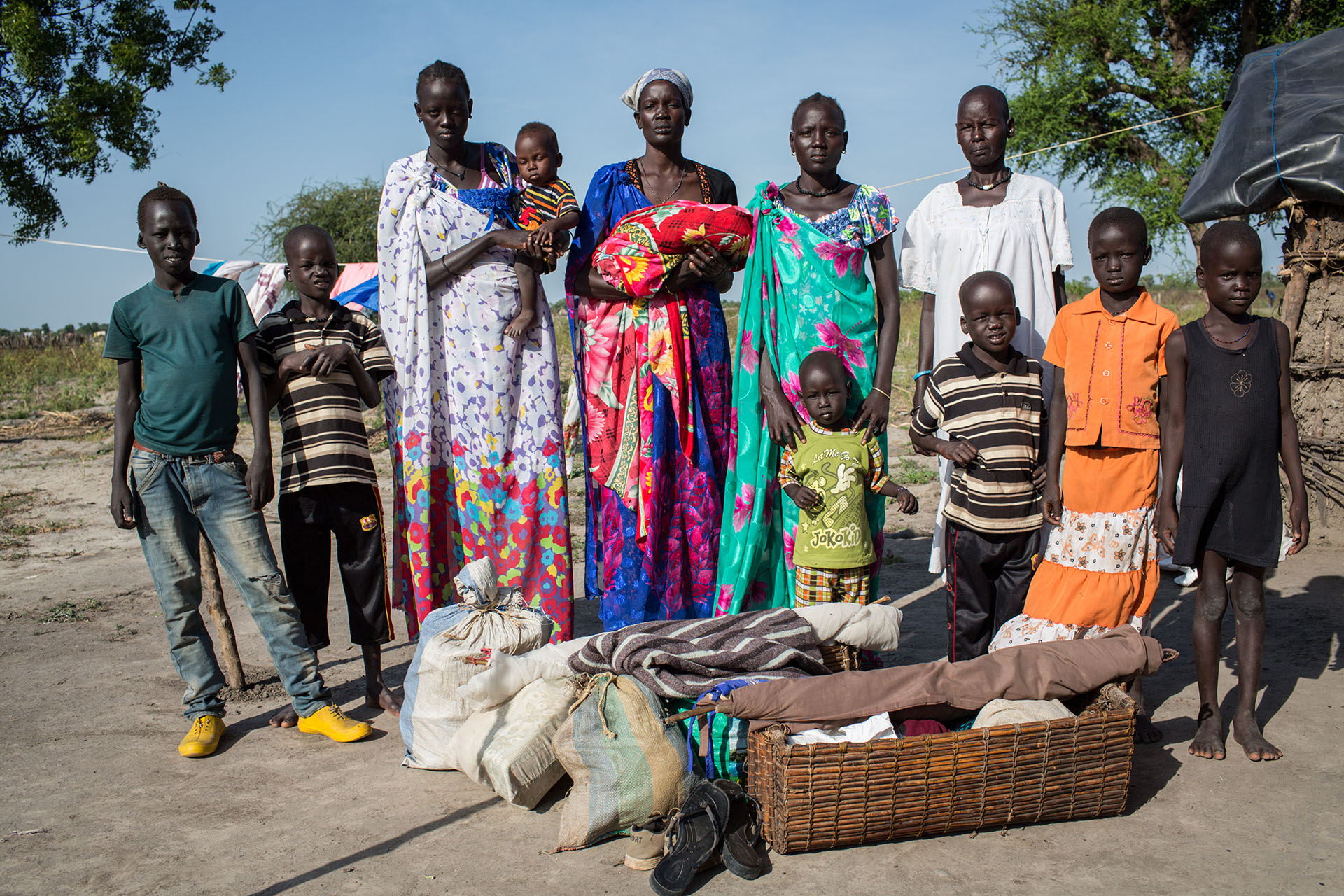
Gatnyak (far left) with several of the 16 family members who returned home together to Leer, in Unity State, South Sudan.
In all, close to 1.9 million South Sudanese have fled their homes in the past year. Some have sought refuge in neighbouring countries; many more are sleeping rough in fields and marshes, in abandoned schools or clinics, or at bases run by the United Nations peacekeeping operation, known as UNMISS, or in camps hurriedly set up by aid agencies.
Most South Sudanese are still not able to return home, but as peace talks continue some people are trickling back. With the end of the rainy season here, however, there are fears that newly passable roads could allow fresh offensives. Above all, people worry about potential rifts within each side of the conflict.
Gatnyak's mother, Nyaruach Malol, 30, and her cousins Nyuot Duop, 24, and Nyathay Duop, 22, decided it was time to try to go back to their village, close to the town of Leer in the country's northern Unity State. Once again, the dangers of staying put drove them to move on – this time back home.
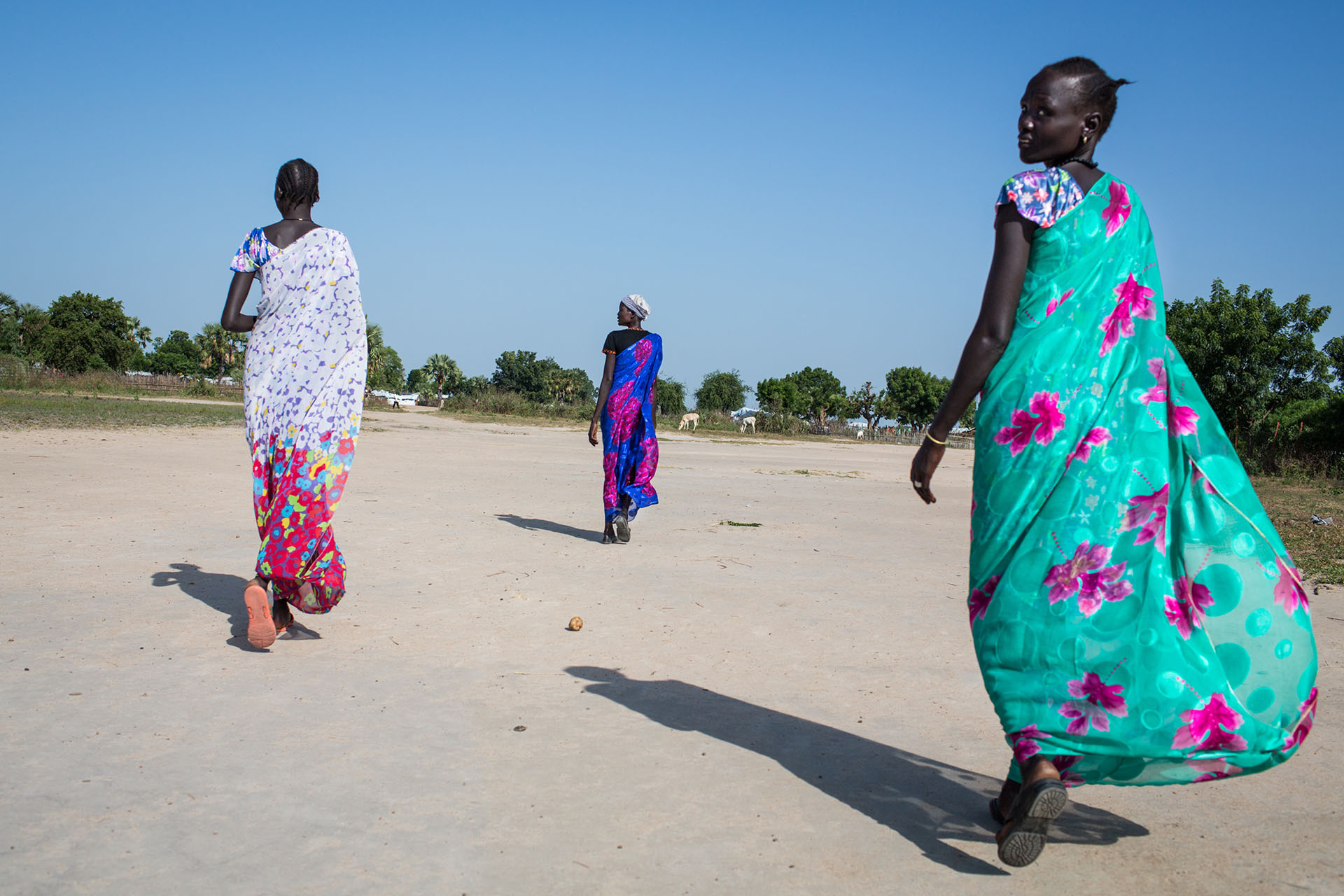
Nearly a year after they fled, Nyathay Duop, 22, Nyaruach Malol, 30, and Nyuot Duop, 24, return home to Leer, in Unity State, South Sudan.
"We were living in a camp at UNMISS, but the food rations stopped and children were falling sick all the time from cholera and diarrhoea," Nyaruach says. "We ran away from home in the first place when there was war, because there was no food. We heard UNMISS was giving people food. It was survival."
She continues: "If your stomach is so empty it hurts you, and your children are so hungry their stomachs hurt also, and you know there is a place with food, you cannot stay where you are. You and your children will die. But then that place became too bad, and we decided again we had to leave, as a means of survival."
There was another reason. An extended family member was collecting firewood beyond the UNMISS camp's perimeter one morning when men approached her, beat her and tried to rape her. She fought back, escaped and ran barefoot to safety.
The journey back to Leer was grim. Nyuot and Nyathay's 60-year-old mother, Nyagak Gatluak, accompanied them, shuffling along with the help of a tall walking stick. The three younger women also had 12 children in tow – all below the age of 10, including two breastfeeding infants.
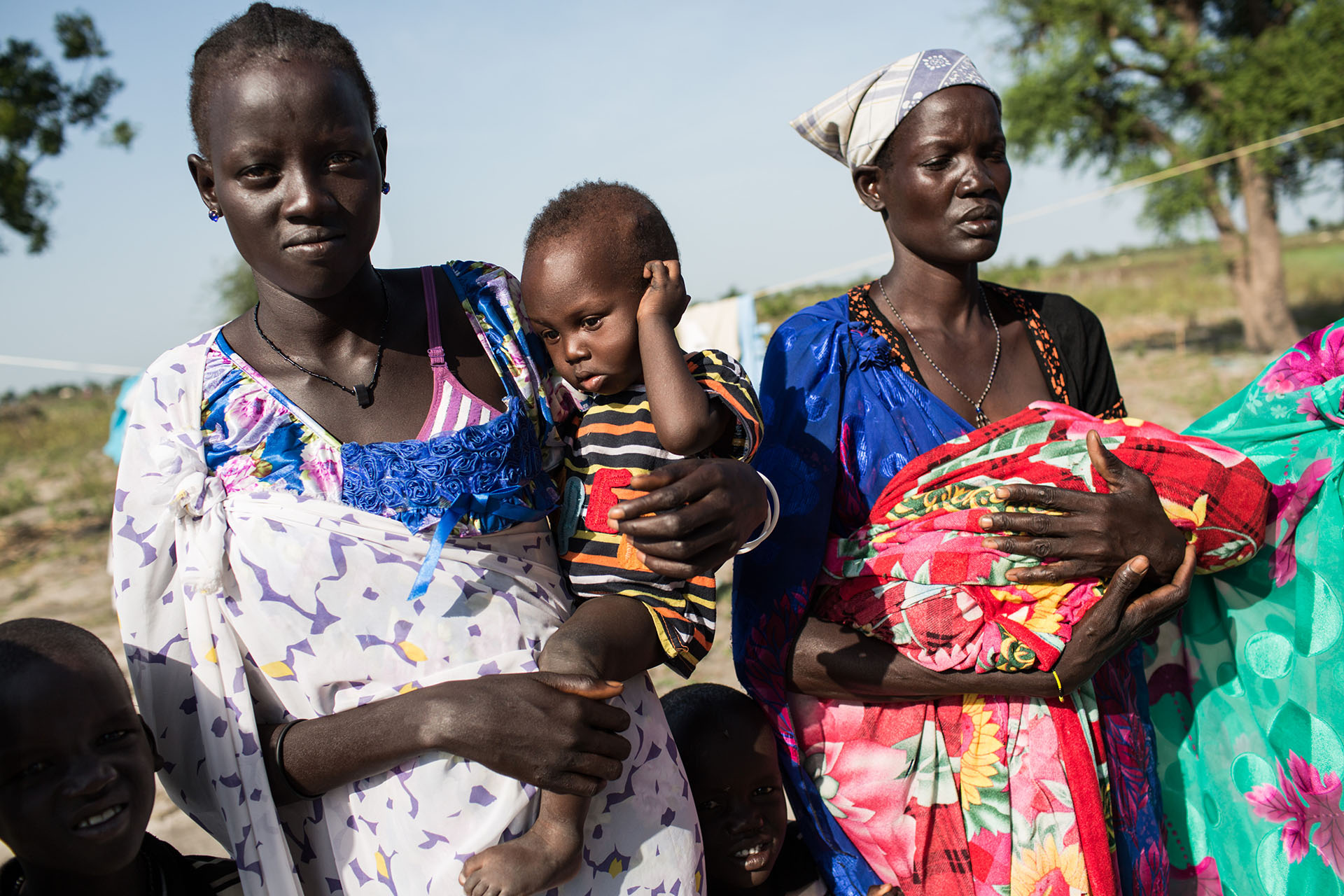
Nyathay (left) and Nyaruach hold two of their young children outside the home of a stranger who invited them to stay for the night in Leer, Unity State, South Sudan.
Her eyes and her occasional sighs belying her exhaustion, Nyaruach describes the journey just hours after she and her family reach the safety of Leer, three hours from her home.
"We moved both by day and by night; when the sun was too hot we rested and we moved when it was cool," she says. "It was very dangerous. There were rivers we had to cross and the water was up to our chins. We bigger people all had to carry the smaller children. They cannot swim.
"We were told to carry nothing. If we have luggage, people think that you are a looter or a supplier for the enemy army, or they themselves want to come to loot from you.
"Soldiers were there, many of them, but they just let us pass. You don't try to avoid them; you walk up to them directly and state your business, and let them check you. If you sneak around they think you are the enemy, they are suspicious. The whole time it was just us. No one was protecting us."
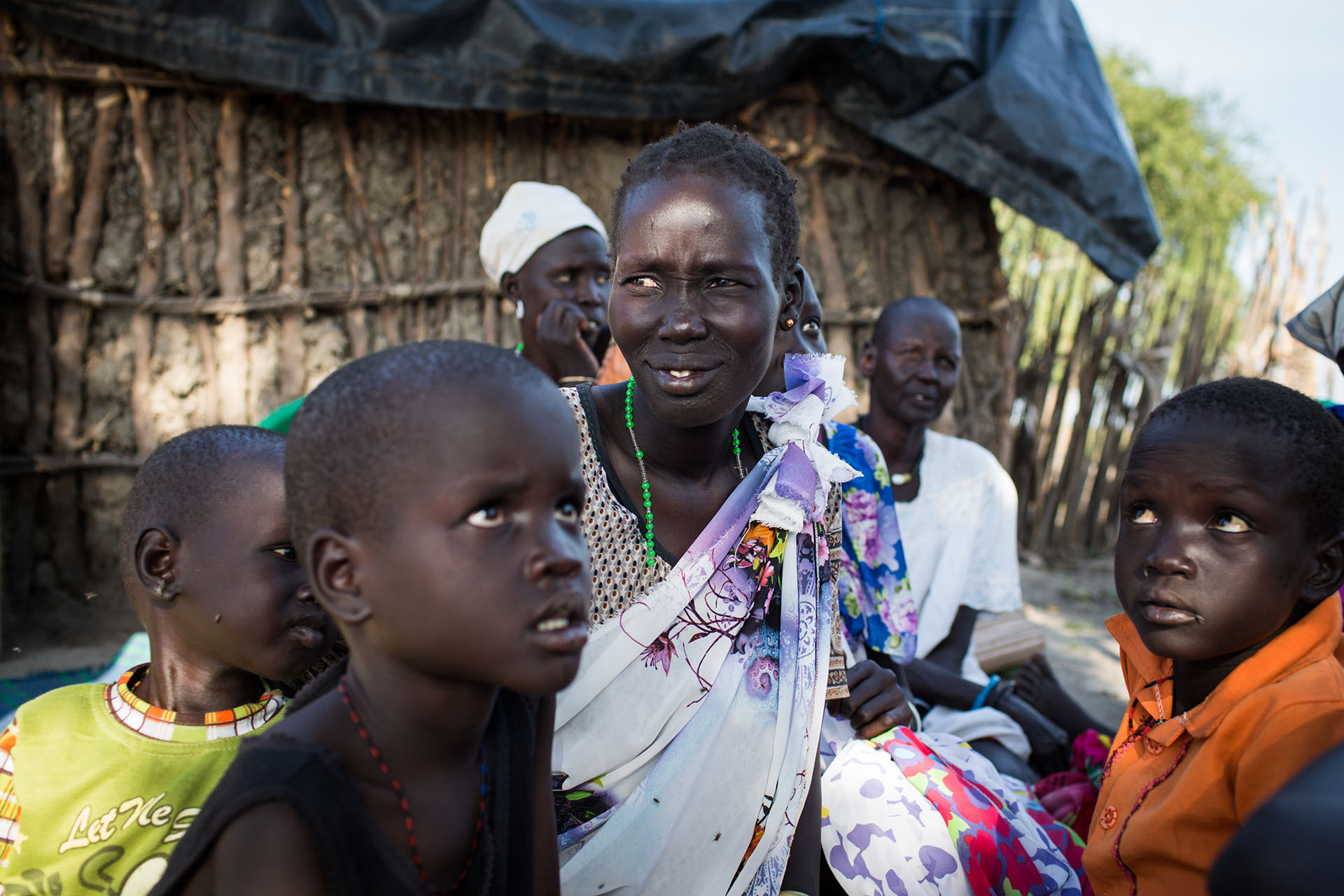
Nyawok Riak, 36, allowed the returning family to stay in her home for the night in Leer, Unity State.
The only thing different from when they ran in the other direction all those months ago was that this time the soldiers were not firing. Maybe the risks of the journey were worth it after all.
Soon after they reach Leer early one morning, their spirits are lifted. Nyuot's five-year-old niece, Nyakuoth, spots her from a distance and runs full speed into her auntie's arms, neither of them able to stop smiling for a long time. They have not seen each other for close to nine months.
The good news spreads that some friends are also safe. But the family receives bad news as well: Nyagak's house in town has been destroyed, and the relatives they are hoping to stay with in Leer are not yet back home.
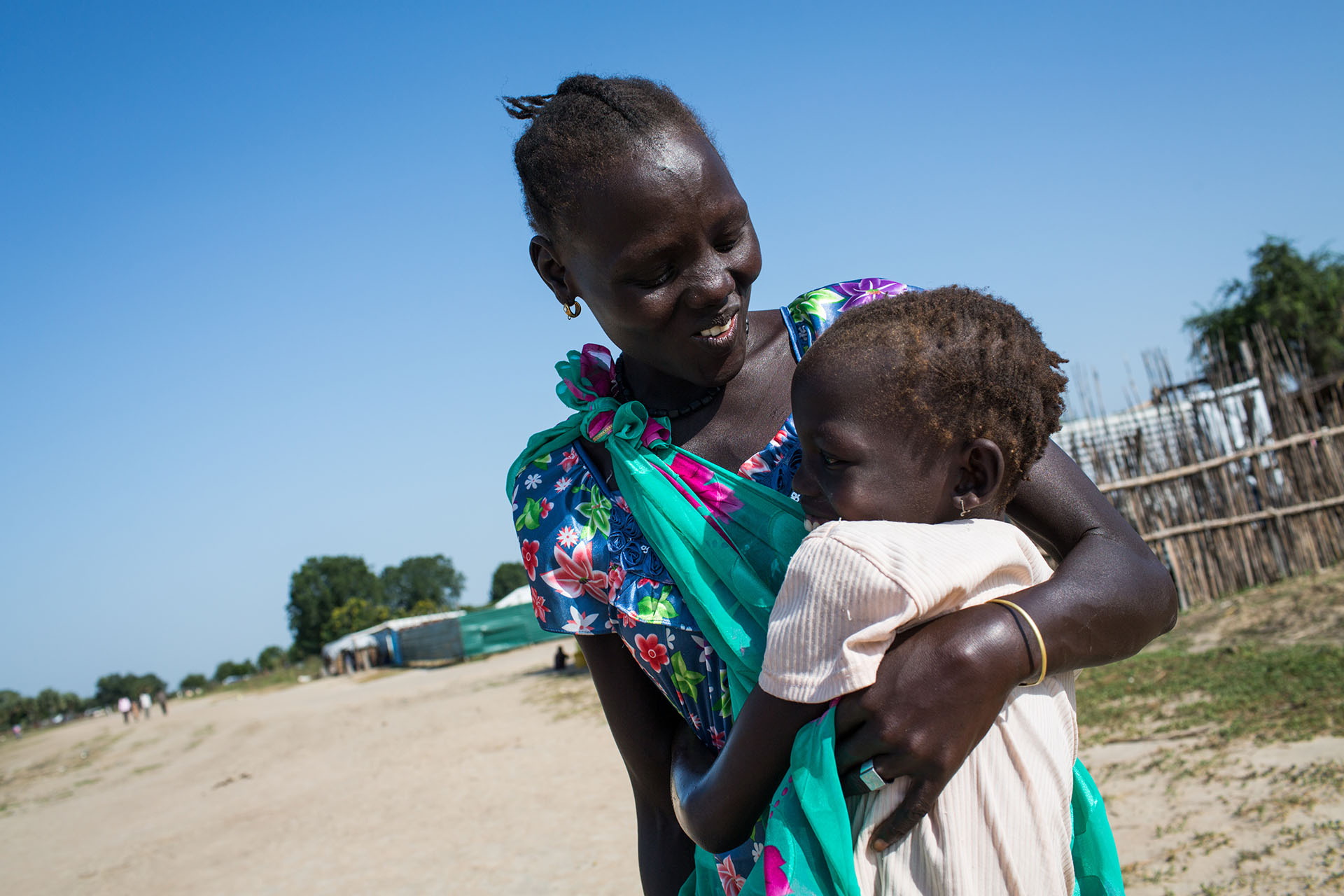
Nyuot Duop spent 12 days walking with her five children through swamps and rivers and sleeping under trees – all for moments like this.
The group is instead taken in by a stranger, Nyawok Riak, who sees them sitting in the meagre shade of a tree and offers shelter and water. "The babies were in the hot sun," she says. "I could not leave them there."
Although the journey is almost over – Nyaruach reckons they will be home by mid-morning the next day – the grim challenges continue for hundreds of thousands of other families across South Sudan as well as those in exile in neighbouring countries.
Those displaced by the crisis need urgent international humanitarian assistance to survive the coming year and, if a peace agreement is concluded, begin to rebuild their lives. UNHCR and several other agencies are working in Leer, providing assistance as well as working with communities to improve their living conditions.
Rebuilding lives will be a challenge. It will entail repairing schools, supplying textbooks and paying teachers again. Restocking pharmacies with medicines and bringing doctors and health workers back to clinics. Providing food aid while also giving out seeds and tools so the next harvest can be planted. Helping to reconstruct homes.
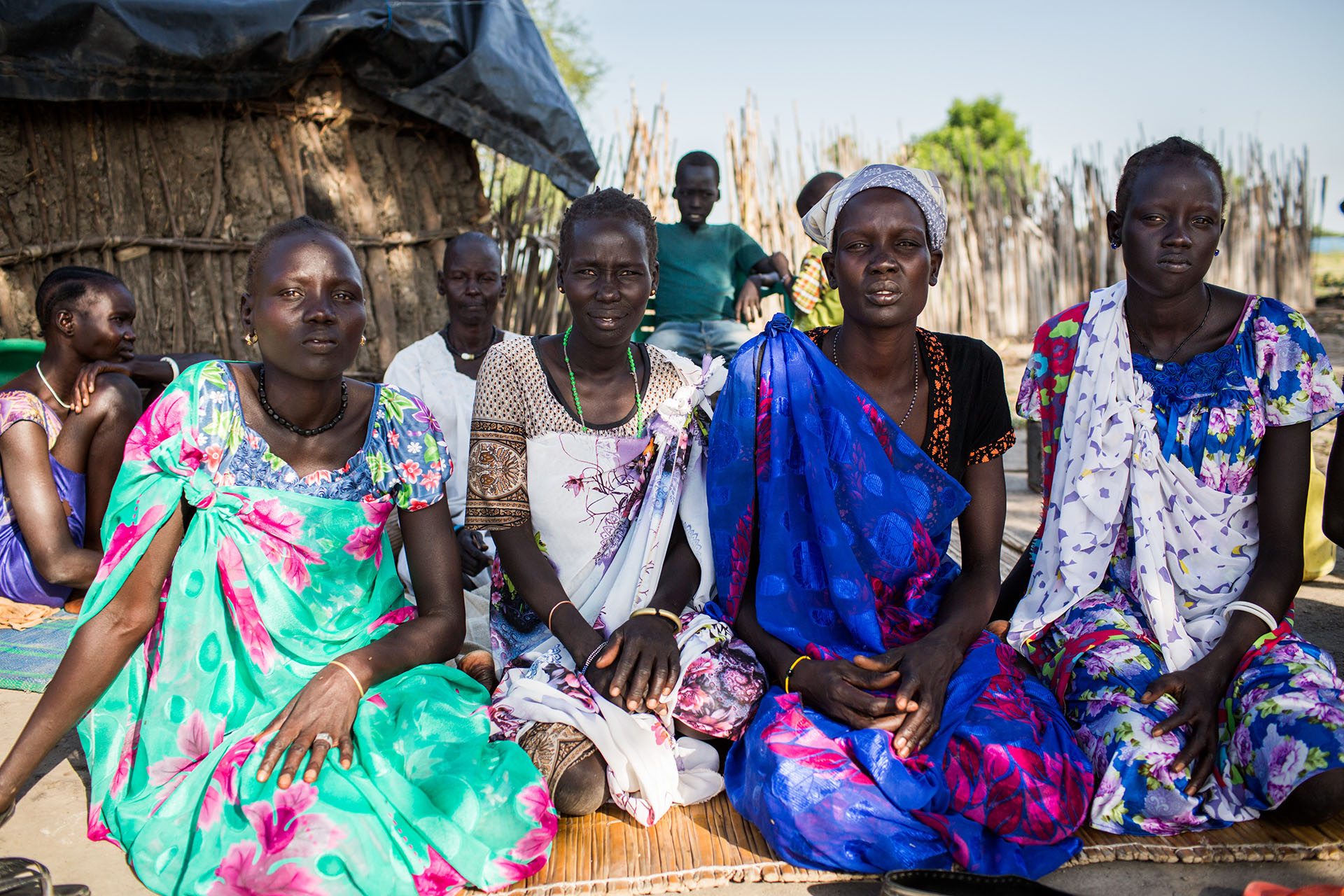
Nyuot, Nyaruach and Nyathay, pictured outside the home of Nyawok (wearing green necklace), a stranger who has taken them in for the night.
Gatnyak, Nyaruach's 10-year-old son, says he is no longer worried about the wild animals and the snakes now that he is nearly home. What worries him is whether his friends are okay, and whether the school in his village will be open.
"Where we have been living this year was too bad, and I have learnt nothing because I was in no classes," he says, his voice strong and confident again.
"I will have to work hard to catch up now." True for Gatnyak, and for his young homeland.





